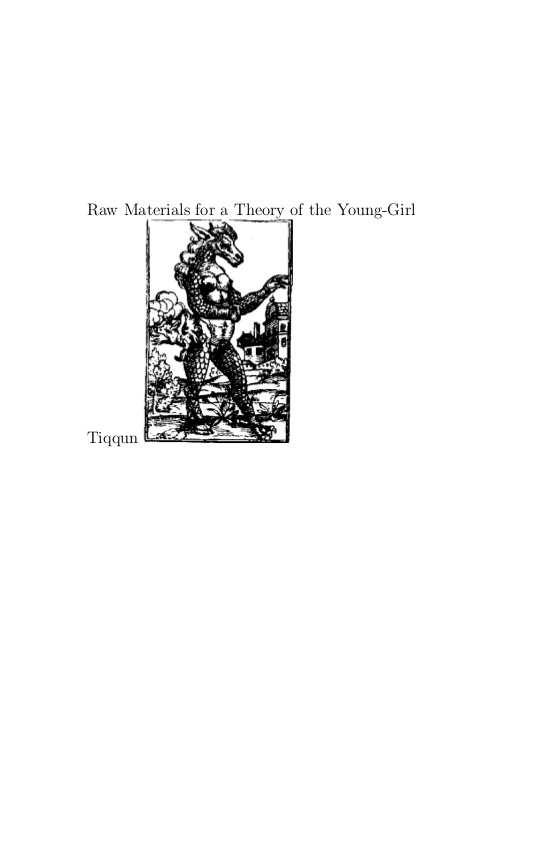Sianne Ngai: Ugly Feelings (2005)
Filed under book | Tags: · aesthetics, affect, art, avant-garde, emotion, feminism, literature, modernity, politics, postmodern

“Envy, irritation, paranoia—in contrast to powerful and dynamic negative emotions like anger, these non-cathartic states of feeling are associated with situations in which action is blocked or suspended. In her examination of the cultural forms to which these affects give rise, Sianne Ngai suggests that these minor and more politically ambiguous feelings become all the more suited for diagnosing the character of late modernity.
Along with her inquiry into the aesthetics of unprestigious negative affects such as irritation, envy, and disgust, Ngai examines a racialized affect called “animatedness,” and a paradoxical synthesis of shock and boredom called “stuplimity.” She explores the politically equivocal work of these affective concepts in the cultural contexts where they seem most at stake, from academic feminist debates to the Harlem Renaissance, from late-twentieth-century American poetry to Hollywood film and network television. Through readings of Herman Melville, Nella Larsen, Sigmund Freud, Alfred Hitchcock, Gertrude Stein, Ralph Ellison, John Yau, and Bruce Andrews, among others, Ngai shows how art turns to ugly feelings as a site for interrogating its own suspended agency in the affirmative culture of a market society, where art is tolerated as essentially unthreatening.
Ngai mobilizes the aesthetics of ugly feelings to investigate not only ideological and representational dilemmas in literature—with a particular focus on those inflected by gender and race—but also blind spots in contemporary literary and cultural criticism. Her work maps a major intersection of literary studies, media and cultural studies, feminist studies, and aesthetic theory.”
Publisher Harvard University Press, 2005
ISBN 0674015363, 9780674015364
viii+422 pages
Reviews: Jennifer L. Fleissner (Modernism/modernity, 2006), Jennifer Greiman (Leviathan, 2012), Eu Jin Chua (Bryn Mawr Review of Comparative Literature, 2007), Dina Mendonça (Metapsychology, 2005).
Interview with author (Adam Jasper, Cabinet)
Publisher
PDF, PDF (updated on 2018-5-23)
Comment (0)Tiqqun: Raw Materials for a Theory of the Young-Girl (1999–) [EN, DE]
Filed under book | Tags: · biopolitics, biopower, body, capitalism, consumerism, desire, feminism, labour, love, metaphysics, philosophy, reification, seduction, sexuality, theory

“First published in France in 1999, Preliminary Materials for a Theory of the Young-Girl dissects the impossibility of love under Empire. The Young-Girl is consumer society’s total product and model citizen: whatever “type” of Young-Girl she may embody, whether by whim or concerted performance, she can only seduce by consuming. Filled with the language of French women’s magazines, rooted in Proust’s figure of Albertine and the amusing misery of (teenage) romance in Witold Gombrowicz’s Ferdydurke, and informed by Pierre Klossowski’s notion of “living currency” and libidinal economy, Preliminary Materials for a Theory of the Young-Girl diagnoses — and makes visible — a phenomenon that is so ubiquitous as to have become transparent.
In the years since the book’s first publication in French, the worlds of fashion, shopping, seduction plans, makeover projects, and eating disorders have moved beyond the comparatively tame domain of paper magazines into the perpetual accessibility of Internet culture. Here the Young-Girl can seek her own reflection in corporate universals and social media exchanges of “personalities” within the impersonal realm of the marketplace. Tracing consumer society’s colonization of youth and sexuality through the Young-Girl’s “freedom” (in magazine terms) to do whatever she wants with her body, Tiqqun exposes the rapaciously competitive and psychically ruinous landscape of modern love.” (from Semiotexte, the publisher of the 2012 edition)
Announcement and discussion about the translation
Commentary (Rob Horning, 2012)
More commentaries (compiled by 1000 Little Hammers, 2013)
Originally published in French as Premiers matériaux pour une Théorie de la Jeune-Fille in Tiqqun 1, 1999
Revised, republished by Éditions Mille et une nuits, 2001.
Translator unknown
Published on younggirl.jottit.com, Jan 2010
PDF (2010)
HTML (2010)
HTML (2012 edition, trans. Ariana Reines, Preliminaries + Chapters 6 & 7)
German edition (2009)
Angela Mitropoulos: Contract & Contagion: From Biopolitics to Oikonomia (2012)
Filed under book | Tags: · biopolitics, capitalism, debt, feminism, marxism, neoliberalism, post-fordism, value

Contract and Contagion presents a theoretical approach for understanding the complex shifts of post-Fordism and neoliberalism by way of a critical reading of contracts, and through an exploration of the shifting politics of the household. It focuses on the salient question of capitalist futurity in order to highlight the simultaneously intimate, economic and political limits to venturing beyond its horizon.
In capitalist history, as well as in philosophy, finance, migration politics, and theories of globalisation, contagions simultaneously real, symbolic and imagined recur. Where political economy understood value in terms of labour, Contract and Contagion argues that the law of value is the law of the household (oikonomia).
In this book Angela Mitropoulos takes up current and historical theories of affect, intimacy, labour and speculation to elaborate a queer, anti-racist, feminist Marxism, which is to say: a Marxism preoccupied not with the seizure of opportunity to take power, form government, or represent an identity, but a Marxism which partakes of the uncertain movements that break the bonds of fate.
Publisher Minor Compositions, Wivenhoe/New York/Port Watson, an imprint of Autonomedia, Brooklyn, NY, October 2012
ISBN 1570272565, 9781570272561
256 pages
PDF
View online (from the publisher)

